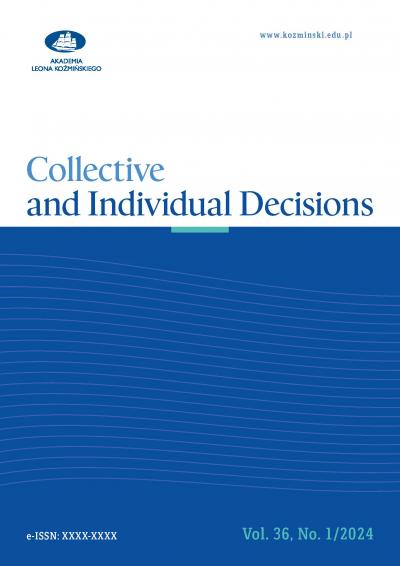Comparing support for income redistribution between Eastern and Western European Union states
Katelyn Finley
University of California, Irvine
6/2014 (21) Decyzje
DOI 10.7206/DEC.1733-0092.22








